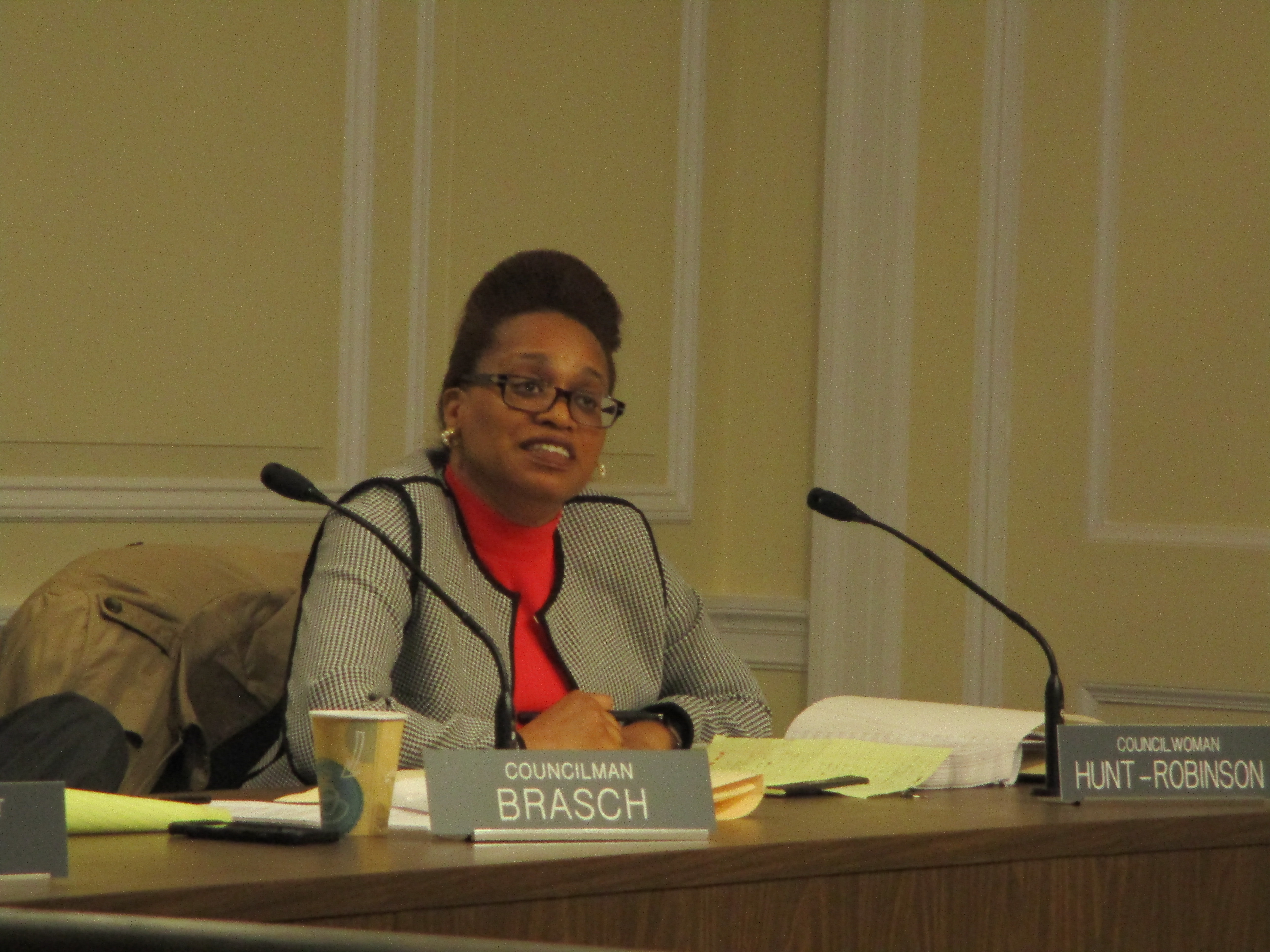White Plains Common Council Okays 2019-20 Budget

Following two months of review, the White Plains Common Council voted 5-2 to approve the 2019-20 budget on May 30.
Voting against the spending plan, which will go into place on July 1, were Councilwoman Milagros Lecuona and Councilman Dennis Krolian.
The budget includes a 2.7 percent tax levy increase, which is lower than the state tax cap for White Plains, which is 4 percent. The tax rate increase is also 2.7 percent.
The tax increase on a home with a median assessed value of $13,500 will be $77.
A major factor for the tax increase is lower sales tax revenue. The city is projecting that sales tax revenue for the coming budget year is going to be $44 million, $2.7 million less than six years ago.
Overall spending, which includes water, sewer, library and self-insurance funds, will rise by $4.4 million, an increase of 2.3 percent.
Mayor Tom Roach supported the budget and praised the work of city employees. “The level of services that are provided to people in this community are higher than you’ll find in any other community,” Roach said. “And we have done it under fiscally trying circumstances.”
The city has been in compliance with the state tax cap every year he has been mayor, including the year before the cap came into effect, Roach said. “We are careful with our money here,” Roach said.
White Plains has met the tax cap despite the fact that state aid has not increased to the city since 2008.
Common Council President John Martin said there are many positive aspects in the budget, including not exceeding the tax cap. The bulk of city budget, 70 percent, is for salaries and benefits for city employees and mostly from union contracts, which were unanimously approved by the Common Council, Martin said. Non-union employees will be receiving a small salary increase next year after some years of seeing their salaries frozen, he said.
The city’s workforce has been reduced by 13 percent over the past decade without cutting services, Martin said.
The 2019-20 budget is using $600,000 less in undesignated fund balance than the current budget does, Martin said.
Debt service has increased, but the borrowing has been done for necessary capital projects, with much of the money coming from the water and parking funds, Martin explained.
Unneeded city-owned properties should be sold to generate additional revenue, Martin said.
Councilwoman Nadine Hunt-Robinson said “the budget, as constructed” will allow the city to maintain its AA1 credit rating from Moody’s. The budget is “insuring the delivery of needed services as well as preserving the quality of life for our residents, while adhering to sound fiscal policies” she said. “Those fiscal policies have led to the continuing AA1 bond rating.”
White Plains, unlike some other local municipalities, does not borrow to pay for tax certiorari refunds or city employees’ pensions, Hunt-Robinson said.
By reducing costs in a variety of ways over the years has “allowed us to toe the line on taxes,” Hunt-Robinson said.
Lecuona explained why she could not support the budget. One of her concerns was the excessive use of fund balance.
The budget does not address many areas of fiscal concerns in the city, Lecuona said. The city needs to have a consolidation plan to reduce costs and there needs to be updates of the city’s Comprehensive Plan, she said, adding an economic development plan needs to be created for the city.
The budget does not provide “clear guidance,” Lecuona said.
Krolian also said he could not support the spending plan for several reasons. The budget has “the highest debt and debt service” payments “I have ever seen,” he said.
The tax reform bill approved in Congress and signed by President Donald Trump no longer allows exemptions for local taxes above $10,000. Many local residents pay over that amount and are being harmed, Krolian said.
“We don’t have the income to do everything we want to do,” Krolian said.
In a related matter, the Common Council voted 5-2 last week to approve a salary increase of 2.5 percent or more to non-union employees, including elected officials and managers. As they did on the 2019-20 budget, Lecuona and Krolian voted “no.”
Lecuona said the 2.5 percent increase or higher was greater than the 2 percent state tax cap. The managers and commissioners are receiving salaries in the “six digits” plus benefits, well above the median income of White Plains residents, she said. Lecuona added she was not criticizing the work of commissioners and managers in delivering services to residents.
Raises for non-union employees need to be based on merit, she said.
Krolian said the non-union employees would not leave their jobs if they did not get raises.
